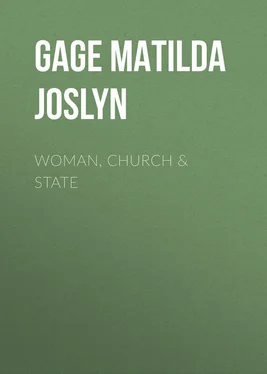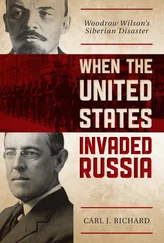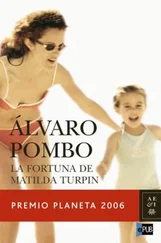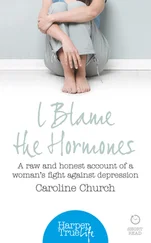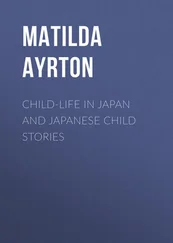Matilda Gage - Woman, Church & State
Здесь есть возможность читать онлайн «Matilda Gage - Woman, Church & State» — ознакомительный отрывок электронной книги совершенно бесплатно, а после прочтения отрывка купить полную версию. В некоторых случаях можно слушать аудио, скачать через торрент в формате fb2 и присутствует краткое содержание. Жанр: foreign_antique, foreign_prose, на английском языке. Описание произведения, (предисловие) а так же отзывы посетителей доступны на портале библиотеки ЛибКат.
- Название:Woman, Church & State
- Автор:
- Жанр:
- Год:неизвестен
- ISBN:нет данных
- Рейтинг книги:3 / 5. Голосов: 1
-
Избранное:Добавить в избранное
- Отзывы:
-
Ваша оценка:
- 60
- 1
- 2
- 3
- 4
- 5
Woman, Church & State: краткое содержание, описание и аннотация
Предлагаем к чтению аннотацию, описание, краткое содержание или предисловие (зависит от того, что написал сам автор книги «Woman, Church & State»). Если вы не нашли необходимую информацию о книге — напишите в комментариях, мы постараемся отыскать её.
Woman, Church & State — читать онлайн ознакомительный отрывок
Ниже представлен текст книги, разбитый по страницам. Система сохранения места последней прочитанной страницы, позволяет с удобством читать онлайн бесплатно книгу «Woman, Church & State», без необходимости каждый раз заново искать на чём Вы остановились. Поставьте закладку, и сможете в любой момент перейти на страницу, на которой закончили чтение.
Интервал:
Закладка:
Matilda Joslyn Gage
Woman, Church & State The Original Exposé of Male Against the Female Sex
Preface
This work explains itself and is given to the world because it is needed. Tired of the obtuseness of Church and State; indignant at the injustice of both towards woman; at the wrongs inflicted upon one-half of humanity by the other half in the name of religion; finding appeal and argument alike met by the assertion that God designed the subjection of woman, and yet that her position had been higher under Christianity than ever before: Continually hearing these statements, and knowing them to be false, I refuted them in a slight resume of the subject at the annual convention of the National Woman Suffrage Association, Washington, D.C., 1878.
A wish to see that speech in print, having been expressed, it was allowed to appear in The National Citizen , a woman suffrage paper I then edited, and shortly afterwards in “The History of Woman Suffrage,” of which I was also an editor. The kindly reception given both in the United States and Europe to that meager chapter of forty pages confirmed my purpose of a fuller presentation of the subject in book form, and it now appears, the result of twenty years investigation, in a volume of over five hundred and fifty pages.
Read it; examine for yourselves; accept or reject from the proof offered, but do not allow the Church or the State to govern your thought or dictate your judgment.
Chapter One
The Matriarchate
Woman is told that her present position in society is entirely due to Christianity; that it is superior to that of her sex at any prior age of the world, Church and State both maintaining that she has ever been inferior and dependent, man superior and ruler. These assertions are made the basis of opposition to her demands for exact equality with man in all the relations of life, although they are not true either of the family, the church, or the state. Such assertions are due to non-acquaintance with the existing phase of historical knowledge, whose records the majority of mankind have neither time nor opportunity of investigating.
Christianity tended somewhat from its foundation to restrict the liberty woman enjoyed under the old civilizations. Knowing that the position of every human being keeps pace with the religion and civilization of his country, and that in many ancient nations woman possessed a much greater degree of respect and power than she has at the present age, this subject will be presented from a historical standpoint. If in so doing it helps to show man’s unwarranted usurpation over woman’s religious and civil rights, and the very great difference between true religion and theology, this book will not have been written in vain, as it will prove that the most grievous wrong ever inflicted upon woman has been in the Christian teaching that she was not created equal with man, and the consequent denial of her rightful place in Church and State.
The last half century has shown great advance in historical knowledge; libraries and manuscripts long inaccessible have been opened to scholars, and the spirit of investigation has made known many secrets of the past, brought many hidden things to light. Buried cities have been explored and forced to reveal their secrets; lost modes of writing have been deciphered, and olden myths placed upon historic foundations. India is opening her stores of ancient literature; Egypt, so wise and so famous, of which it was anciently said: “If it does not find a man mad it leaves him mad,” has revealed her secrets; hieroglyph-inscribed temples, obelisks and tombs have been interpreted; papyri buried 4,000 and more years in the folds of bandage-enveloped mummies have given their secrets to the world. The brick libraries of Assyria have been unearthed, and the lost civilization of Babylonia and Chaldea imparted to mankind. The strange Zunis have found an interpreter; the ancient Aztec language its Champollion, and the mysteries of even our western continent are becoming unveiled. Darkest Africa has opened to the light; the colossal images of Easter Island hint at their origin; while the new science of philology unfolds to us the history of peoples so completely lost that no other monument of their past remains. We are now informed as to the condition of early peoples, their laws, customs, habits, religion, comprising order and rank in the state, the rules of descent, name, property, the circumstances of family life, the position of mother, father, children, their temples and priestly orders; all these have been investigated and a new historic basis has been discovered. Never has research been so thorough or long-lost knowledge so fully given to the world.
These records prove that woman had acquired great liberty under the old civilizations. A form of society existed at an early age known as the Matriarchate or Mother-rule. Under the Matriarchate, except as son and inferior, man was not recognized in either of these great institutions, family, state or church. A father and husband as such, had no place either in the social, political or religious scheme; woman was ruler in each. The primal priest on earth, she was also supreme as goddess in heaven. The earliest semblance of the family is traceable to the relationship of mother and child alone. Here the primal idea of the family had birth. 1 1 The first state of primitive man must have been the mere aggregation. The right of the mother was therefore most natural; upon the relationship of mother and child the remotest conception of the family was based. — Wilkin , p. 869.
The child bore its mother’s name, tracing its descent from her; her authority over it was regarded as in accord with nature; the father having no part in the family remained a wanderer. Long years elapsed before man, as husband and father, was held in esteem. The son, as child of his mother, ranked the father, the mother taking precedence over both the father and the son. 2 2 Where a god and goddess are worshiped together they are not husband and wife, but mother and son. Neither does the god take pre-eminence, but the mother or goddess. This condition dates from the earliest days of society, when marriage in our sense of the word was unknown, and when kinship and inheritance were in the female line. The Babylonian Ishtur of the Izdobar legend is a deity of this type. — W. Robertson Smith : Kinship in Ancient Arabia .
Blood relationship through a common mother preceded that of descent through the father in the development of society. 3 3 Dr. Th. Achelis. — Article on Ethnology : ( The Open Court ).
This priority of the mother touched not alone the family, but controlled the state and indicated the form of religion. Thus we see that during the Matriarchate, woman ruled; she was first in the family, the state, religion, the most ancient records showing that man’s subjection to woman preceded by long ages that of woman to man. The tribe was united through the mother; social, political and religious life were all in harmony with the idea of woman as the first and highest power. The earliest phase of life being dependent upon her, she was recognized as the primal factor in every relation, 4 4 In a country where she is the head of the family, where she decides the descent and inheritance of her children, both in regard to property and place in society in such a community, she certainly cannot be the servant of her husband, but at least must be his equal if not in many respects his superior. — Wilkin .
man holding no place but that of dependent.
Every part of the world today gives evidence of the system; reminiscences of the Matriarchate everywhere abound. Livingstone found African tribes swearing by the mother and tracing descent through her. Marco Polo discovered similar customs in his Asiatic voyages, and the same customs are extant among the Indians of our own continent. Bachofen 5 5 Motherright.
and numerous investigators 6 6 Lubbuck. — Pre-Historic Times and Origin of Civilization . Wilkin .
agree in the statement that in the earliest forms of society, the family, government, and religion, were all under woman’s control; that in fact society started under woman’s absolute authority and power.
Интервал:
Закладка:
Похожие книги на «Woman, Church & State»
Представляем Вашему вниманию похожие книги на «Woman, Church & State» списком для выбора. Мы отобрали схожую по названию и смыслу литературу в надежде предоставить читателям больше вариантов отыскать новые, интересные, ещё непрочитанные произведения.
Обсуждение, отзывы о книге «Woman, Church & State» и просто собственные мнения читателей. Оставьте ваши комментарии, напишите, что Вы думаете о произведении, его смысле или главных героях. Укажите что конкретно понравилось, а что нет, и почему Вы так считаете.
